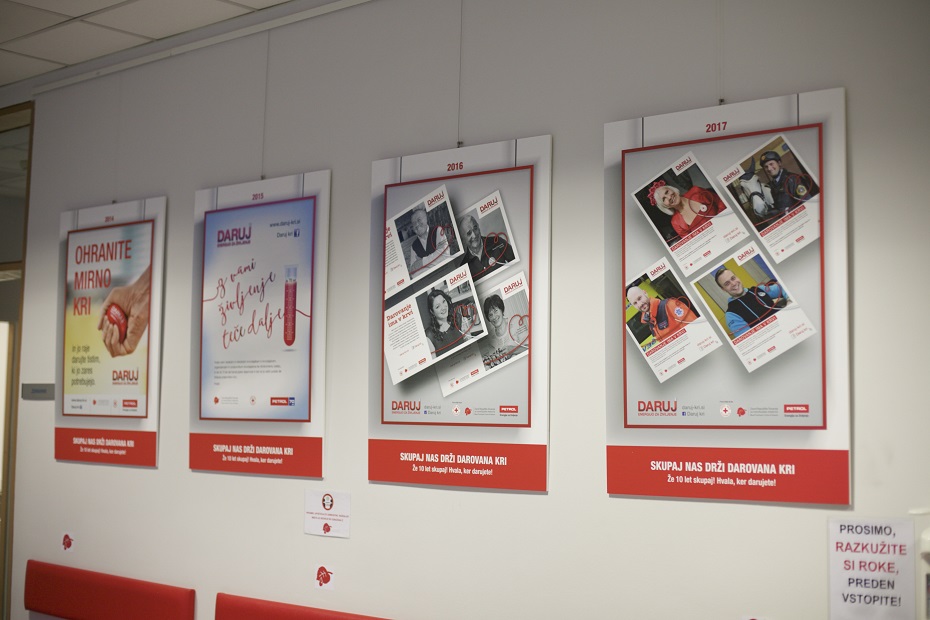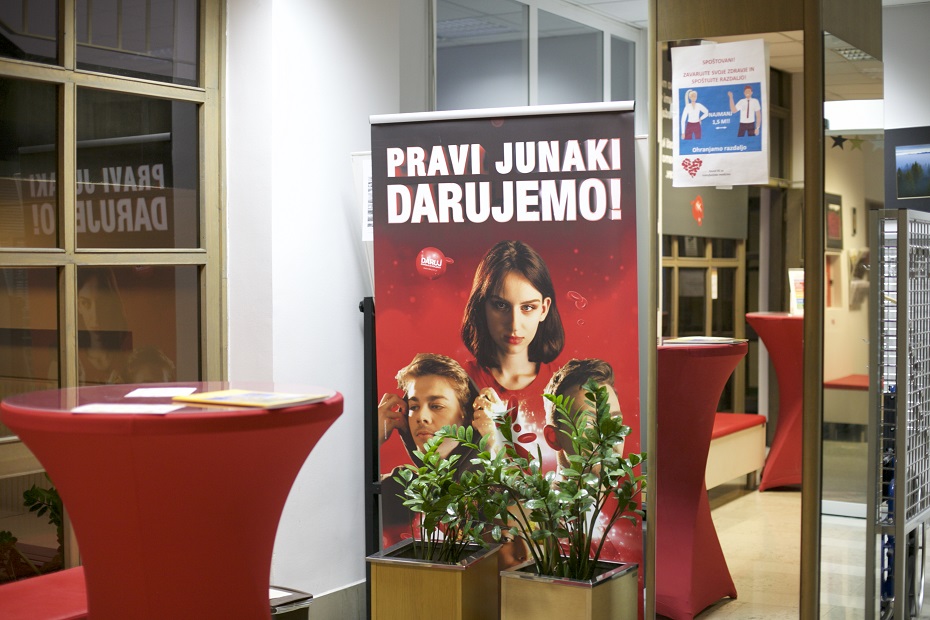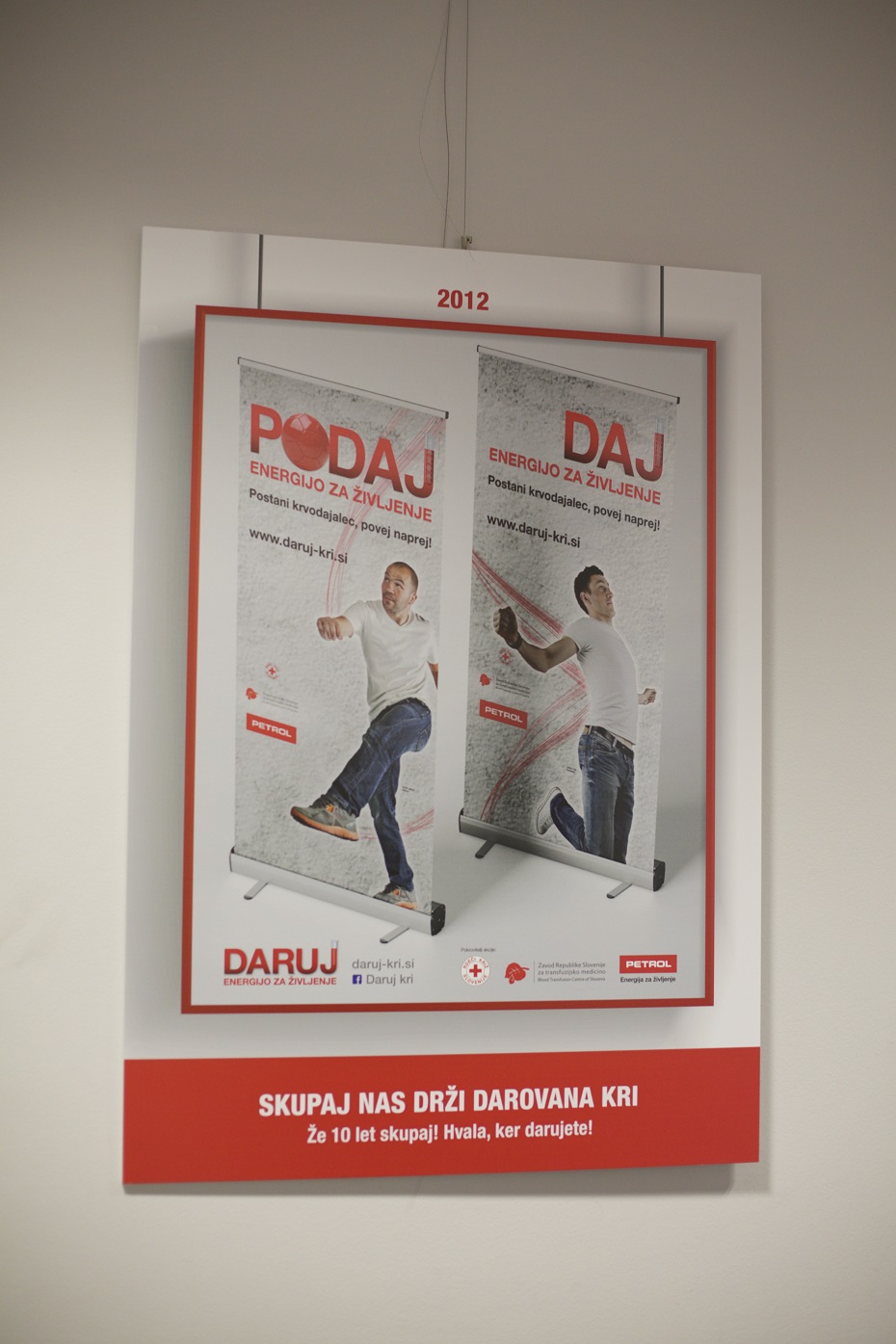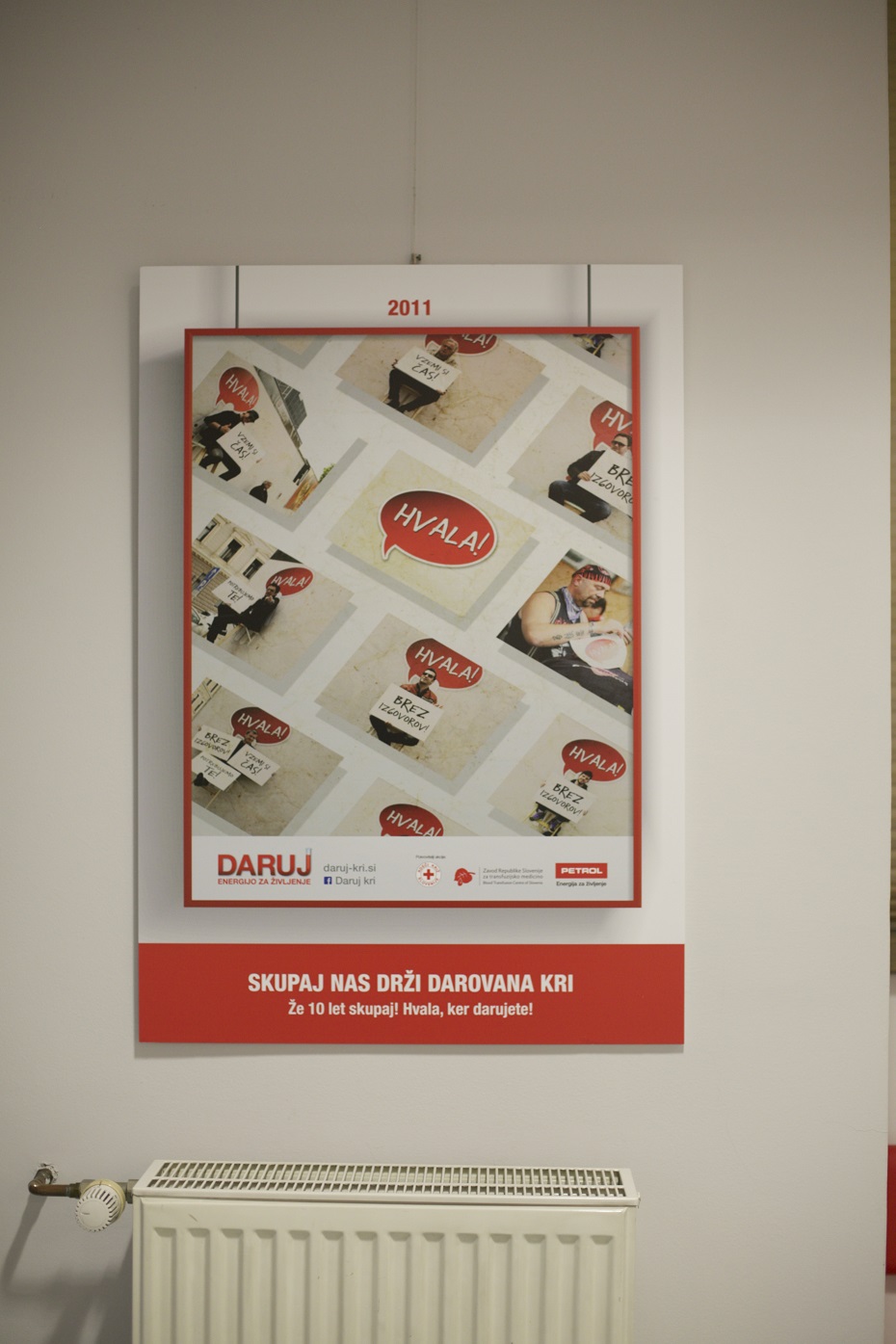Exhibition in honour of the 10th anniversary of the “Give Energy for Life” initiative!
The novel coronavirus cut deep into our lives, and brought on changes and issues in the economy and health care. In these challenging times, the blood donated by blood donors is even more valuable. The number of blood donors in Slovenia affirms that solidarity and helping others are important and cherished values, which we must nurture and promote, even in these unpredictable times. This is why the “Give Energy for Life” blood donation initiative, implemented by the Blood Transfusion Centre of Slovenia, the Slovenian Red Cross, and Petrol, is more important than ever. This year marks the tenth consecutive year that the partners have combined efforts to raise awareness about the importance of blood donors and blood donations for treating patients.
At this time, when we are facing a series of unknowns, when we are forced to spend much of our lives in the virtual world, the need for donated blood in the real world, impacted by the novel coronavirus disease, remains. With the December awareness campaign with the slogan, “Blood Holds Us Together”, the partners of the initiative thanked all the blood donors for their help and participation, and at the same time invited new blood donors, as well as those who recovered from COVID-19, to become part of this big family of kind-hearted people.
The purpose of the “Give Energy for Life” joint initiative includes raising public awareness about the importance of blood donation, blood donor acquisition, and retention of a stable base of active blood donors, ensuring safe blood from responsible and aware blood donors. Throughout these ten years, the awareness campaigns have improved, and modernised communication with blood donors, provided them more information, and achieved a higher level of mutual understanding and cooperation. Blood donors now actively participate in balancing blood stocks, as they register for donation on the basis of daily blood stock monitoring.
The Blood Donation Service and the Slovenian Red Cross ensure responsible, careful, and rational handling of blood, by constantly monitoring the joint blood stocks, and inviting blood donors according to the actual needs. They have done the same during the COVID-19 epidemic.
This year, a special invitation was extended to persons who have recovered from COVID-19. Their blood contains antibodies that can help to treat the sick. By collecting plasma from recovered COVID-19 patients, the Blood Transfusion Centre of Slovenia follows all the globally recognised modern professional guidelines. Slovenian health care institutions have already started treating patients with hyperimmune plasma, donated by recovered COVID-19 patients.
Partners of the initiative would like to thank all who wish to join this big family in advance. You are kindly invited to call your nearest transfusion centre and make an appointment.
To quickly adapt to the actual demand, we must always have enough blood donors on hand, who are willing to donate blood when it is needed.
Blood donation in Slovenia in numbers:
• The first vial of blood was conserved in 1945.
• A person needs blood every 5 minutes.
• 100,000 blood donors donate blood annually.
• Women can donate blood every 4 months and men every 3 months.
• We need around 350 blood donors daily for an uninterrupted blood supply.
• There have been almost 90,000 newly registered blood donors since 2011.
• The Slovenian Red Cross, together with the Blood Donation Service, organises more than 1,100 blood drives each year.
At the end of the year, blood donors at the Blood Transfusion Centre of Slovenia were able to see an exhibition which presents the ten years of intensive work to raise awareness about the importance of donating blood.
As can be seen from the photos below, which were displayed at the exhibition, numerous celebrities from the world of music, art, culture, sport, blood donors and recipients with their stories, motorcyclists, police officers, rescue workers, patients, doctors and medical staff, journalists, bloggers, scouts, various professional groups, volunteers, etc., participated in the ten campaigns to raise awareness.




